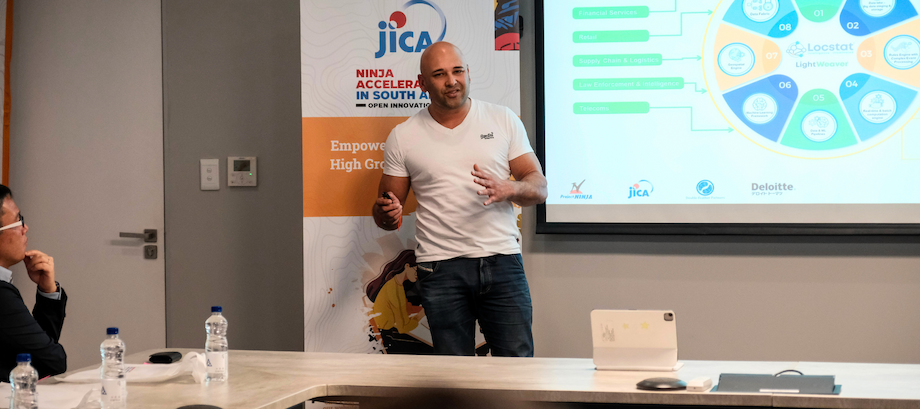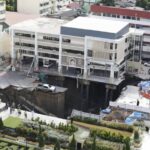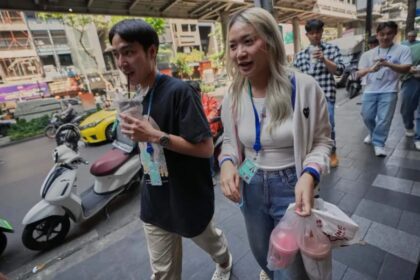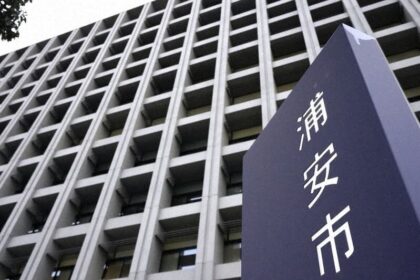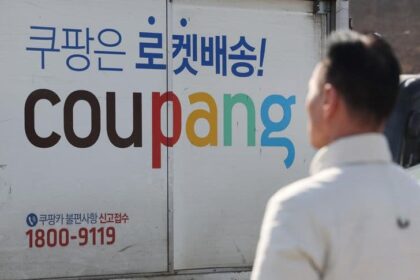Why JICA withdrew the Africa hometown plan
Japan’s international aid agency has scrapped a new exchange initiative that linked four Japanese municipalities with four African countries after a wave of misinformation turned a local diplomacy project into a target of protests. The Japan International Cooperation Agency said it withdrew the JICA Africa Hometown program after consulting the Foreign Ministry and the four cities involved. The agency cited persistent false claims that the project would encourage immigration, a narrative that spawned protest calls and emails that overwhelmed local offices.
The initiative was unveiled in August during the Ninth Tokyo International Conference on African Development in Yokohama. JICA “designated” four cities as hometowns for four partner countries, a label meant to spur cultural, educational, and economic exchanges. The name, and the act of designation, proved confusing. Posts across social networks claimed the effort would bring in migrants, and rumors spread of special visa categories that did not exist.
Agency leaders said they tried to correct the record quickly, yet the pressure on the municipalities did not ease. JICA decided to cancel the program, including its name, to protect city operations and public services. The agency apologized to the cities, reiterated it does not handle immigration policy, and promised to continue supporting international exchanges in a different form after a careful review.
How a cultural exchange plan became a flashpoint
The controversy gathered speed soon after the launch. A statement from the Nigerian presidency incorrectly suggested that Japan had named Kisarazu in Chiba Prefecture as a hometown for Nigerians who want to live and work in the city, and that a special visa category would be created. The statement was later removed, but the claims went viral before corrections took hold. Around the same time, a headline in an East African outlet described Nagai in Yamagata Prefecture as being “dedicated” to Tanzania. Online posts spun that translation into claims that a Japanese city had been handed over to a foreign country.
These narratives found traction inside Japan, where debates over labor shortages and immigration policy often run hot. Protest calls and emails inundated city halls. A crowd gathered outside JICA headquarters in Tokyo to denounce the plan. Local leaders reported a surge in misinformation that drowned out their explanations that the initiative did not change immigration rules.
A senior Foreign Ministry official voiced unease about how the backlash was being perceived, and warned against rewarding online pile-ons.
“It would be problematic if this is seen as a victory on the internet.”
The remark captured the dilemma. Officials faced a choice between safeguarding city staff from harassment and sticking with a project that had become a magnet for disruptive claims. Even as the government repeated that immigration policy was unchanged, the strain on local governments continued.
What the program was, and what it was not
JICA’s concept was simple. Match each of four Japanese cities with one African partner country, then build exchanges that reflect local strengths. Cities could host training visits, stage school and community exchanges, and connect small and midsize companies with partners abroad. Any internships would be short term and premised on a return home, consistent with existing practice for training programs that involve foreign participants.
The four city country pairings
- Kisarazu, Chiba Prefecture with Nigeria
- Nagai, Yamagata Prefecture with Tanzania
- Sanjo, Niigata Prefecture with Ghana
- Imabari, Ehime Prefecture with Mozambique
Details of individual events and exchanges were still being shaped. No part of the initiative created or promised special visas. JICA does not control immigration rules, which are set and managed by other government bodies. In its public notice, JICA reiterated that it has never promoted immigration and has no plan to do so, while pledging clearer explanations of its activities and tight management of any travel tied to its programs. The agency posted a contact number and asked the public to direct questions to JICA rather than local governments. The notice is available on the agency’s website at JICA notice.
Strain on the four cities
The pushback hit municipal offices hardest. Kisarazu reported roughly 200 calls a day at one point. Staff struggled to keep up with inquiries while maintaining normal services. In Imabari, officials discovered anti-immigration graffiti in city hall restrooms. Sanjo received thousands of opinions and questions, and even saw its city hall name temporarily altered on an online map to “Ghana City Hall.” A planned visit by Ghanaian government officials was canceled while the situation was reassessed.
Local governments posted clarifications on their websites stating that they neither promote immigration nor plan to accept interns under conditions that would lead to settlement. Some asked central authorities to resolve the confusion or terminate the designation to calm their communities. JICA’s decision to withdraw came with an apology to the municipalities for the excessive burden they carried.
Behind the scene, city leaders noted that these partnerships did not appear out of nowhere. Many already had ties to their respective partner countries through education, business, or civil society exchanges. The hometown label was meant to spotlight existing links and build practical cooperation, not to change who can live and work in Japan.
What officials are saying
JICA President Akihiko Tanaka said the agency responded quickly to correct false claims, but the toll on local offices and residents was decisive. He spoke at a news conference about why the agency ended the program and dropped the name.
“We decided to scrap the program, including its name, in view of the impact on the municipalities’ daily operations.”
In an official notice, JICA addressed the core rumor directly.
“JICA has never undertaken initiatives to promote immigration and has no plans to do so in the future.”
Chief Cabinet Secretary Yoshimasa Hayashi also clarified how any training would have worked and stressed that the initiative was not an immigration scheme.
“The JICA project envisions accepting interns from Africa, but the training is for a limited time, and it is based on the premise that they will return to their home countries after it ends. It is not a promotion of immigration.”
Officials said international exchanges remain valuable and that the substance of city to country partnerships can continue in a different format. A Foreign Ministry official said the content of the project had merit, and efforts to promote exchanges would go on after the withdrawal.
Why the word hometown caused confusion
JICA acknowledged that both the term hometown and the act of having a national agency “designate” a municipality helped seed misunderstandings. Hometown can signal roots and settlement in everyday speech. When paired with posts that misrepresented the initiative as a pathway to live and work in Japan, the label became a lightning rod. The agency’s public statement recognized that this naming choice, combined with the announcement format at a large international conference, fueled the mix-up and placed extra pressure on city governments.
Translation errors and the speed of social media compounded the problem. A headline that used “dedicate” instead of “designate” sparked claims that a Japanese city was being given away. A separate, mistaken government statement abroad was framed as proof of special visas. Similar rumor cycles have touched other topics, from false claims about foreign operators taking the controls of Shinkansen trains to confusion over the role of public funds in private sector investment goals. The Foreign Ministry has said it will bolster systems to detect misinformation and improve how embassies and consulates field communications tied to local announcements.
There are practical takeaways. Labels should be plain. Explanations and frequently asked questions should be ready on day one. Crisis communication plans need scenarios that include translation snafus, unattributed viral posts, and the possibility of local officials being overwhelmed. The lesson is less about retreat than about ensuring future exchanges are built on words and formats that are hard to twist.
What happens next for Japan Africa ties
JICA said it will review the content of the scrapped initiative and continue to support international exchanges, including those involving African partners. That likely means smaller, clearly defined projects carried out by cities, schools, and chambers of commerce, without labels that invite confusion. The agency emphasized that any travel associated with its programs will remain under careful management and that it will continue to explain its activities to the public with more precision.
City leaders have not turned their backs on Africa partnerships. Officials in Nagai indicated that exchange with Tanzania would continue, while asking central authorities to communicate facts promptly and clearly. Ghana’s canceled visit to Sanjo, first intended to include tours of farms and local manufacturers, could be rescheduled once the environment is calmer. The Foreign Ministry has signaled that the substance of exchanges is worth saving even if the label has been retired.
Japan is wrestling with demographic realities, from an aging population to persistent labor shortages, while keeping some of the strictest immigration rules among advanced economies. That context is fertile ground for rumor and fear. Officials across ministries say they want international exchange that builds skills and trust without upending immigration policy. The next iteration of city to country partnerships will be judged on how well it navigates that balance in the open, with steady communication and clear terms.
Key Points
- JICA canceled its Africa Hometown initiative after sustained misinformation tied the project to immigration.
- The program launched at TICAD 9 and paired Kisarazu with Nigeria, Nagai with Tanzania, Sanjo with Ghana, and Imabari with Mozambique.
- False claims about special visas spread online after a mistaken statement from the Nigerian presidency and a mistranslated headline about Nagai.
- Municipalities faced a surge of protest calls and emails, graffiti appeared in Imabari, and a planned Ghana visit to Sanjo was canceled.
- JICA apologized to the four cities and said it will continue to support international exchanges under a revised approach.
- JICA stated it has never promoted immigration and has no plans to do so, and asked the public to direct questions to JICA, not city halls.
- Chief Cabinet Secretary Yoshimasa Hayashi said any internships would be short term and premised on a return home, not a path to immigration.
- A senior Foreign Ministry official cautioned that treating the withdrawal as an internet victory would be problematic.
- The Foreign Ministry plans stronger misinformation detection, and JICA will refine naming and communication for future exchange projects.


